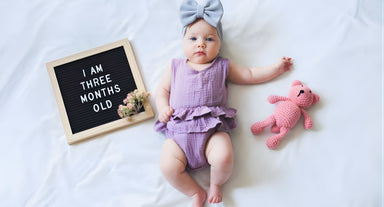Eyes are considered the windows to each person's soul. Therefore, eye protection and care for children or adults is extremely important. A pair of healthy, bright eyes will help your baby freely explore the colorful world around him in the most detail.
Furthermore, healthy eyes are very important in children's learning, entertainment and daily activities. Specifically, to fully absorb knowledge, children must both listen attentively to the lecture and observe and follow the instructions in books or on the teacher's blackboard. But for children with weak eyes, it will be a disadvantage compared to their peers.
In today's situation, it can be seen that the rate of children with poor eyesight or suffering from diseases is increasing. Therefore, protecting and taking care of children's eyes is necessary from an early age to ensure quality of life, help children stay comfortable and achieve the best results in learning and playing.
The article below will help parents take care of their children's eyes properly, helping them protect their eyes and prevent eye diseases effectively.
When do children need eye care?
If the eyes are not properly protected and cared for, it will easily lead to eye-related diseases such as nearsightedness, astigmatism, strabismus, allergies, photophobia, etc. Therefore, parents need to regularly monitor Monitor and observe your baby to detect signs of eye problems and treat them promptly.
Below are warning signs that parents should not ignore the need for eye care in children :
Frequent rubbing of eyes
Frequent rubbing of eyes is one of the signs of tired eyes that parents should pay attention to. Especially in cases where babies need to observe or look at something, they often use their hands to rub their eyes to see more clearly.

Sit close to the TV screen
Many children have the habit of looking closely at the TV screen or electronic devices to watch. This is a bad habit for the eyes that parents need to remind their children about. If this happens often, your child sits too close to the screen or brings books up to his face to see, then immediately think that your child may be nearsighted.
Eyes squint when looking at objects
When trying to look closely at an object, your baby squints his eyes, it is very likely that his eyes are nearsighted. Children with farsightedness cannot see close objects clearly when they look at them. Squinting is an action to adjust vision, helping the eyes see more clearly.
Red eyelids, watery eyes
Red eyelids, lots of tears or eyes that are sensitive to light are also warning signs of poor eyesight, requiring eye care for children. Parents should take their children to an eye specialist for examination and treatment.
Eyes are tired and sore
When sitting and watching TV or on the computer, children feel pain, which means their eyes are tired and need to rest. If this condition continues, parents need to take care of their children's eyes and take them to the doctor to best protect their eyes.
You must use your finger to point when reading
Observe your child's reading regularly. Normally, children have the habit of using their hands as "guides" to read or spell. However, if this condition occurs continuously, parents can check by letting the baby read without pointing. If the child cannot do this, parents should take the child for an eye examination.

Or tilt your head to look
People with eye-related diseases such as nearsightedness, farsightedness, astigmatism... often show signs of having to tilt their heads to see things clearly. Therefore, check your baby's eyesight as well as arrange a suitable sitting position so your baby can more easily observe.
Ways to care for children's eyes that parents should know
People often say "prevention is better than cure", so it is never too early to take care of your children's eyes . This will help children's eyes stay bright, healthy, and prevent diseases.
Build a reasonable nutritional regimen for your eyes
Nutrition is one of the important factors to possess clear, healthy eyes. According to nutrition experts, foods containing vitamin A, vitamin C, beta-carotene, lutein, and selenium are very good in taking care of children's eyes.
You can easily find these vitamins and minerals in red, dark yellow or green foods such as tomatoes, strawberries, red beets, carrots, pumpkin, broccoli, and spinach. .. In addition, add a variety of dishes from animal liver, seafood, poultry, eggs, milk... because they also contain a lot of vitamin A and selenium. Or pumpkin seeds, melon seeds, soybeans, walnuts... rich in vitamin E.

Remind your child to sit and study in the correct posture
Sitting in the wrong posture while studying, eyes glued to books... are also causes of reduced eyesight. Therefore, parents need to remind their children to sit in the correct posture when studying and keep a reasonable distance from books. The correct posture when sitting to study is a straight back, legs closed, feet close to the floor, head bowed about 10-15 degrees.
In addition, parents should review whether the baby's learning equipment is ready, what the lighting is like, and whether it ensures the baby's health and eyes.
Avoid watching TV or electronic devices for too long
Watching too much TV or electronic devices not only causes "addiction" but also affects your health, especially your eyes. When exposed to these devices a lot, your baby's eyes will feel tired and sore. In the long term, your baby's eyesight will decrease and he will be susceptible to eye diseases.
Parents should reduce TV viewing time to less than 2 hours a day. Instead, let your baby participate in many other interesting outdoor entertainment activities. An effective way that many parents have successfully applied is to let their children experience assembly toys and intellectual toys for children . It helps children relax and have fun while also bringing effective learning and brain development benefits.
Keep your distance when watching TV or electronic devices
Many children have the habit of sitting close to the TV screen to watch. This is very harmful to the eyes. Please keep a safe distance from your baby to the TV screen at least 3.5m. In addition, when watching TV, pay attention to the light intensity and not be too dark because this also affects your baby's eyes.

Don't let your baby rub his eyes
When your baby rubs his eyes, harmful bacteria can easily enter his eyes. This causes many dangerous eye infections. Therefore, teach your baby good hand hygiene habits and not rubbing their eyes to best care for their eyes .
Avoid unsafe baby toys
Today on the market there are many types of baby toys of unknown origin. These toys are often made from poor quality materials and have sharp edges, so they pose many potential health risks to children. When your baby plays, has a lot of contact and accidentally touches his eyes, it will affect the child.
Parents can completely overcome this by choosing to buy baby toys with clear origins and reputable brands to ensure children's safety and health.
Protect and care for children's eyes when going out
You may not know, UV rays also have a negative effect on children's eyes. To prevent and take care of children's eyes , parents should be fully equipped with necessary items when going out such as wearing sunglasses , wide-brimmed hats, and sun-protective clothing.
In addition, it is necessary for your baby to wear swimming goggles when he or she goes swimming to avoid causing irritation. And stay away from toxic cleaning chemicals to avoid burning your eyes when exposed.

Regular eye examination for children
Currently, most schools organize regular health and eye examinations for children. However, parents should not be subjective. Take your child for regular eye exams to best protect and care for their eyes. Note, parents should take their children for eye exams from birth, 6 months old, 3-4 years old, 5 years old and annually when the baby is over 5 years old.
Above is the information parents need to keep in mind to detect signs of poor vision in their baby. From there, there are ways to properly protect and care for children's eyes , helping them freely explore the world, play, and learn effectively.




